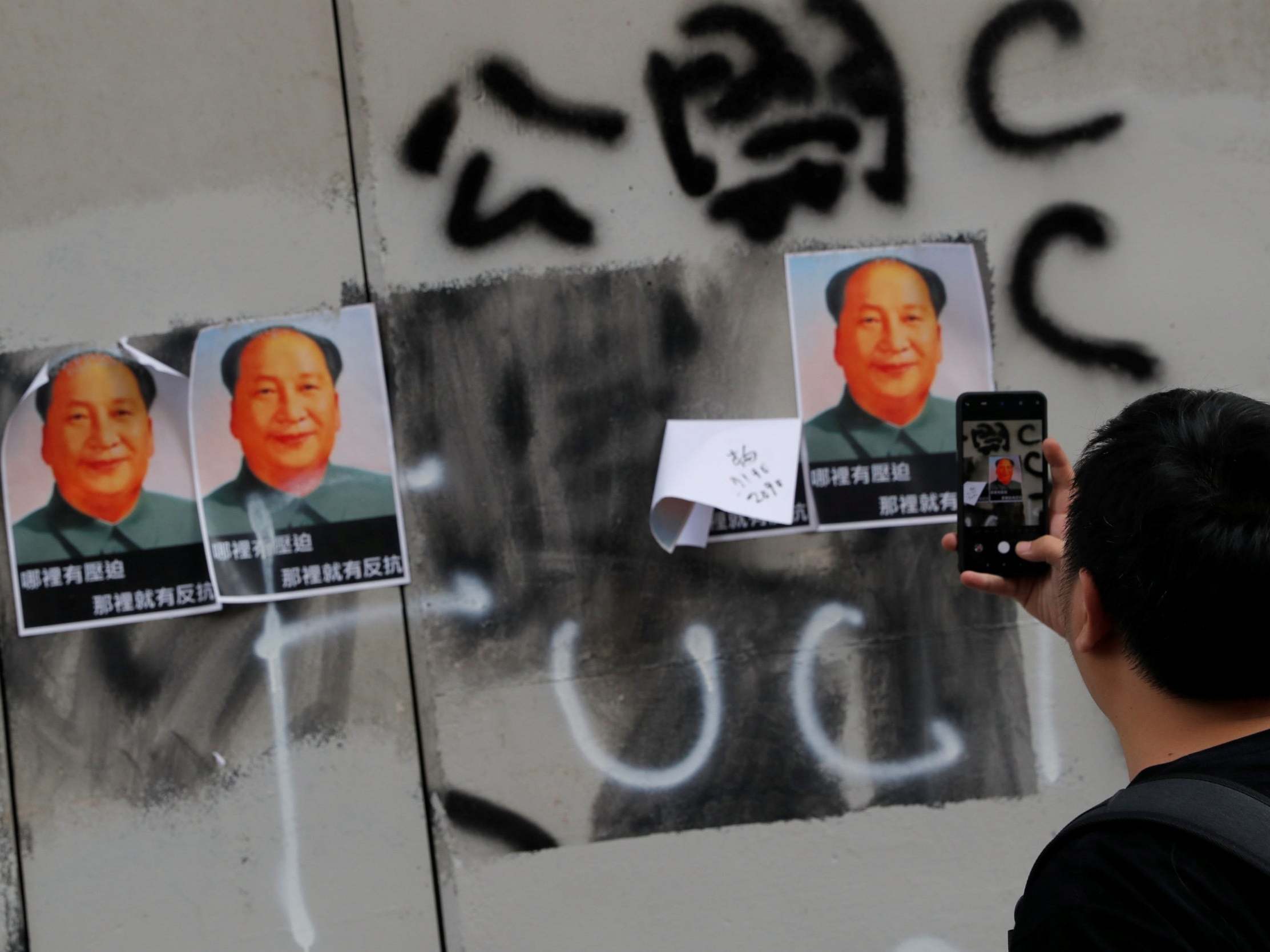American businesses are facing a China crisis amid Hong Kong protests
Companies birthed in the land of the free have been left on the horns of a dilemma by the protests and the Chinese reaction to them. They're not finding good answers, says James Moore


The China crisis facing American business extends far beyond the NBA, which has generated headlines for all the wrong reasons. It’s seen its game plan for the country wiped out by a single tweet put up by Daryl Morey, the general manager of the Houston Rockets, that expressed support for the protesters in Hong Kong.
Apple now finds itself uncomfortably in the spotlight after pulling an app that tracked the movements of police in China’s “special administrative region” through the use of crowdsourced data. It had been used by the pro-democracy protesters.
Apple said HKmap.live was in violation of local laws and company guidelines. The tech giant had been the subject of an editorial in China’s People’s Daily accusing it of “protecting rioters” with a “poisonous app”.
Its move is actually less impactful than it looks: there are web browser versions available for people to use.
The problem for Apple is the optics. The mealy-mouthed explanation that the app “violates our guidelines and local laws” fools no one. What you have here is a company birthed in the land of the free that could, with its taking down the app, be accused of being complicit in the suppression of freedom to protect its bottom line.
It is far from alone.
Software company Activism Blizzard, which is part Chinese owned, recently banned a leading pro-gamer for a year after he voiced a pro-democracy slogan during a post-game interview.
The backlash was swift, and fierce. A boycott has been threatened and The Daily Beast has reported that a number of employees staged a walkout in protest. “Blizzard makes a lot of money in China but now the company is in this awkward position where we can’t abide by our values,” an employee told the publication.
Then there’s Google. This is where it gets really interesting. For a long time it allowed InfoWars founder Alex Jones to give vent to his hate filled rants and conspiracy theories via YouTube on the grounds of free speech.
Jones’ extremism has had real world consequences. He’s being sued for defamation by parents of children killed in the Sandy Hook school massacre after he falsely claimed the event as a put up job. Jones has since claimed he believes the shooting took place, but some have been forced into hiding or have had to move a number of times as a result of the response this provoked.
Then there was his touting of the debunked “Pizzagate” conspiracy theory that linked Democrats and Washington DC restaurants with an alleged human trafficking and child sex-ring. He eventually issued an apology but not before a gunman had turned up at a DC area pizzeria where he fired three shots.
Compare that to the way a protester sponsored role playing game “Revolution of our Times” was taken down after just three days, according to the Hong Kong free press. The contrast between the two is quite stark.
China represents the holy grail for America’s corporate and sporting champions and no wonder. It’s an enormous market that is only going to grow in importance as the years go by and is thus central to the strategies of those like the tech giants which hope to tap into it and keep their investors in the style to which they have become accustomed by so doing.
But conducting business there presents challenges given the nature of China’s government and its willingness to play hardball with those that displease it in a way that’s really quite rare.
The NBA has twisted in the wind on this. The tweet was deleted, apologies were made, and then rowed back upon. It still can’t seem to work out quite how to respond in the wake of China suspending cooperation.
Some companies have used the events to draw a distinction between their policies and those of companies like Blizzard.
Fortnite’s creator Epic Games, for example, made clear that it will support its players if they choose to make political statements. If you want to speak out get on board the battle bus, I guess.
The more Hong Kong looks like it’s going to end badly, the more these dilemmas are going to come to the fore, the more unflattering the light cast upon them.
But should they even be dilemmas? Not to put too fine a point on it but Apple’s Tim Cook was among the signatories to the recent “statement of corporate purpose” put up by America’s business community.
This, in theory, moves companies beyond the idea that their sole purpose is to maximise profits for shareholders. It talks at length about “stakeholders” and “ethics”.
How does one square ethics with some of the responses to what’s going on in Hong Kong? Do these companies see the problem? If they don’t then they’re surely part of it. The water they find themselves in is only going to get hotter as the temperature rises in Hong Kong.
Join our commenting forum
Join thought-provoking conversations, follow other Independent readers and see their replies
Comments